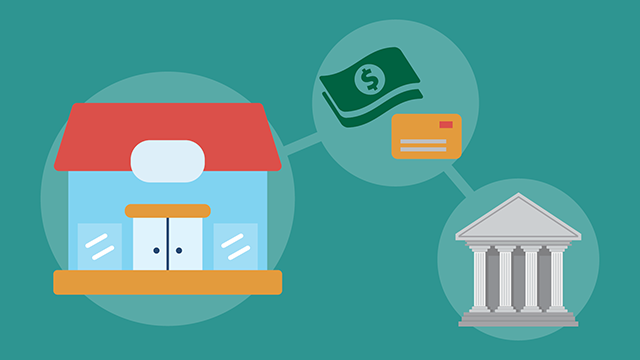A Comprehensive Overview to Home Loans: Provider and Options Explained
Charting the world of home car loans can be intricate. Different alternatives exist, each with unique features and ramifications for prospective home owners. Comprehending the distinctions between government-backed and conventional finances is vital. In addition, the application process involves thorough paperwork and pre-approval steps that lots of ignore. As borrowers start on their home-buying journey, understanding just how to manage these duties properly could imply the difference in between financial security and hardship. What approaches can encourage them on this path?
Recognizing Home Loans: Kinds and Terms
Recognizing the different sorts of home loans and their connected terms is vital for prospective property owners, as it furnishes them with the understanding needed to make educated monetary decisions. Home loans can be generally classified into adjustable-rate and fixed-rate home mortgages. Fixed-rate home mortgages keep a constant rate of interest over the life of the lending, offering stability in regular monthly repayments. Alternatively, adjustable-rate home mortgages include rate of interest that may fluctuate after a preliminary set period, possibly causing lower first settlements but increased future expenses.
Extra terminology is vital for clarity. Principal refers to the loan amount obtained, while interest is the cost of borrowing that amount. The regard to the finance suggests its duration, usually ranging from 15 to 30 years. Comprehending these fundamental principles makes it possible for possible customers to browse the complicated landscape of home funding, guaranteeing they select the ideal loan choice that aligns with their financial circumstance and long-term objectives.
Traditional Fundings vs. Government-Backed Loans
A significant difference in home financing exists in between standard financings and government-backed finances, each accommodating various borrower needs and conditions. Conventional fundings are not insured or assured by the federal government and generally require greater credit rating and deposits. They are usually interesting consumers with secure economic backgrounds, as they may use affordable rate of interest and terms.
In contrast, government-backed fundings, such as FHA, VA, and USDA lendings, are made to help certain groups of customers, consisting of first-time homebuyers and professionals. These lendings typically include reduced deposit requirements and even more flexible credit score criteria, making them available to a more comprehensive array of people.
Inevitably, the selection between government-backed and conventional fundings rests on the debtor's financial situation, long-term goals, and eligibility, making it vital to very carefully evaluate both options before deciding.
The Function of Rates Of Interest in Home Financing
Rates of interest play an essential role in home funding, influencing debtors' decisions between variable and fixed price car loans. The option between these alternatives can considerably influence regular monthly repayments, affecting general cost. Recognizing just how rate of interest rates function is vital for anyone maneuvering with the mortgage procedure.
Repaired vs. Variable Rates
Buyers deal with a crucial choice when choosing between repaired and variable prices, as this option significantly impacts the expense of financing in time. Fixed-rate mortgages supply security, locking in a rate of interest for the life of the car loan, which can be advantageous in a rising passion price environment. This predictability permits house owners to budget better. Conversely, variable-rate mortgages, or adjustable-rate home mortgages (ARMs), commonly begin with lower initial prices that can rise and fall based upon market problems. While this might bring about reduced initial settlements, borrowers deal with the threat of increased rates in the future. Eventually, the choice between variable and set prices depends on specific monetary scenarios, threat tolerance, and expectations pertaining to future rates of interest patterns.
Effect on Month-to-month Payments
When examining home funding alternatives, the influence of rate of interest on regular monthly settlements is a vital factor to contemplate. Interest prices straight influence the general expense of borrowing, impacting just how much a debtor will certainly pay every month. A reduced interest rate lead to smaller regular monthly repayments, making homeownership much more budget friendly. On the other hand, higher rates can substantially increase monthly obligations, possibly stressing a property owner's spending plan. Furthermore, the finance term plays an important function; longer terms might spread out payments out yet can bring about paying more passion gradually - Fast Cash. Recognizing just how rates of interest engage with financing quantities and terms is vital for consumers to make informed financial choices and select a mortgage that lines up with their long-term economic objectives
Mortgage Brokers vs. Straight Lenders: Which Is Right for You?
When thinking about a mortgage, possible debtors should recognize the unique roles and responsibilities of mortgage brokers and straight loan providers. Each option presents its own advantages and downsides, which can significantly influence the overall price of funding. An enlightened option needs cautious analysis of these aspects to identify the most effective fit for private requirements.
Obligations and roles Defined
Maneuvering the complexities of home funding requires a clear understanding of the duties and responsibilities of mortgage brokers and direct loan providers. Cash Loans. Home mortgage brokers serve as middlemans, linking consumers with lenders. They evaluate a consumer's financial situation, curate loan choices, and guide customers with the application procedure, often leveraging numerous lending institution relationships to secure favorable terms. On the other hand, direct lenders, such as financial institutions and credit rating unions, give fundings straight to borrowers. They handle the entire loan procedure, from application to financing, with a concentrate on their own items. Each alternative offers distinct avenues for acquiring funding, making it important for customers to assess their needs and preferences when determining in between engaging a home mortgage broker or collaborating with a direct lending institution
Benefits and drawbacks Contrast
Picking in between a home mortgage broker and a direct loan provider can considerably influence the home financing experience, as each option supplies one-of-a-kind advantages and drawbacks. Mortgage brokers work as intermediaries, supplying accessibility to numerous lenders and possibly better rates, while simplifying the car loan process. However, they may charge costs and depend on payment frameworks that can influence their suggestions. On the other hand, direct lenders simplify the process by supplying in-house fundings, which can bring about much faster approvals and fewer difficulties. On the other hand, they might have a restricted selection of items and less adaptability pertaining to pricing. Inevitably, the decision depends upon individual choices, economic circumstances, and the wanted level of support throughout the home loan journey.
Price Implications Examined
While assessing the price implications of home mortgage brokers versus direct loan providers, possible home owners have to think about various elements that can significantly influence their overall costs. Home loan brokers typically charge costs for their services, which can vary substantially, influencing the overall finance cost. They commonly have access to a wider variety of car loan items and competitive rates, look at here now possibly saving debtors cash in the long run. On the other hand, straight lenders might supply a more uncomplicated procedure with possibly lower upfront costs, however their lending options may be restricted. It is vital for house owners to contrast interest prices, charges, and terms from both brokers and loan providers, ensuring they make an informed choice that straightens with their economic objectives and demands.
The Home Loan Application Refine: What to Anticipate
The home mortgage application process can usually really feel intimidating for lots of applicants. It usually starts with collecting required documentation, consisting of proof of earnings, credit rating background, and individual identification. Lenders utilize this info to evaluate the applicant's financial security and figure out finance eligibility.
Next, candidates send a formal application, which may include completing on-line types or offering details personally. During this phase, loan providers examine various aspects, such as debt-to-income proportion and credit report, to select loan terms.
Once pre-approved, the loan provider will certainly conduct a detailed evaluation of the property to identify its worth straightens with the funding amount. This stage might additionally include extra background checks.
After last approvals and conditions are fulfilled, the car loan is refined, causing the closing stage. Understanding each step equips candidates, making the trip smoother and much more manageable as they approach homeownership.
Tips for Handling Your Mortgage Properly
Successfully navigating the home mortgage application procedure is just the start of a liable financial trip. Taking care of a home lending requires interest to several vital techniques. First, consumers ought to develop a clear budget plan that accommodates monthly home loan repayments, real estate tax, and insurance coverage. Routinely examining this spending plan assists protect against overspending and guarantees prompt repayments.

Furthermore, making added payments when possible can substantially decrease the financing principal and total passion paid in time. Debtors need to also keep open lines of interaction with their lender, especially in times of monetary trouble - Payday Loans. This can result in potential remedies such as loan alterations or refinancing alternatives
It is a good idea to keep track of credit score ratings regularly. A great credit history rating can offer possibilities for better funding terms in the future. By site here complying with these tips, home owners can navigate their funding duties effectively, ensuring long-lasting monetary health and wellness and stability.
Often Asked Questions
What Are Closing Expenses and How Are They Calculated?
Closing prices incorporate fees connected with wrapping up a home mortgage, including appraisal, title insurance, and funding source fees. These prices generally vary from 2% to 5% of the car loan quantity, differing based on location and lending institution.

Can I Certify for a Home Mortgage With Bad Credit Rating?
Yes, people with poor credit report can get a home mortgage, though choices might be restricted. Lenders frequently call for higher deposits or rate of interest, and discovering government-backed financings may boost possibilities of authorization.
What Is Home loan Insurance coverage and When Is It Needed?
Mortgage insurance coverage protects loan providers versus default and is generally called for when a borrower makes a deposit of much less than 20%. It assures that lending institutions recoup losses if the borrower falls short to pay back the financing.
Just How Does Refinancing Job and When Should I Consider It?
Refinancing involves changing an existing mortgage with a new one, typically to secure a reduced rate of interest or modification loan terms. Property owners ought to consider re-financing when rates of interest go down significantly helpful resources or their financial scenario enhances.
What Happens if I Miss a Home Mortgage Settlement?
If a home loan payment is missed out on, the loan provider generally assesses late costs, reports the delinquency to credit scores bureaus, and might launch foreclosure proceedings if repayments proceed to be neglected, eventually endangering the house owner's property.
Fixed-rate mortgages preserve a constant rate of interest price over the life of the loan, providing security in month-to-month repayments. A considerable distinction in home financing exists between standard lendings and government-backed lendings, each catering to different borrower requirements and conditions. In comparison, government-backed finances, such as FHA, VA, and USDA fundings, are developed to aid certain groups of debtors, consisting of newbie property buyers and experts. Passion rates play an important duty in home financing, affecting customers' decisions between variable and fixed rate car loans. Fixed-rate home mortgages provide security, locking in a passion rate for the life of the lending, which can be useful in a rising interest rate environment.